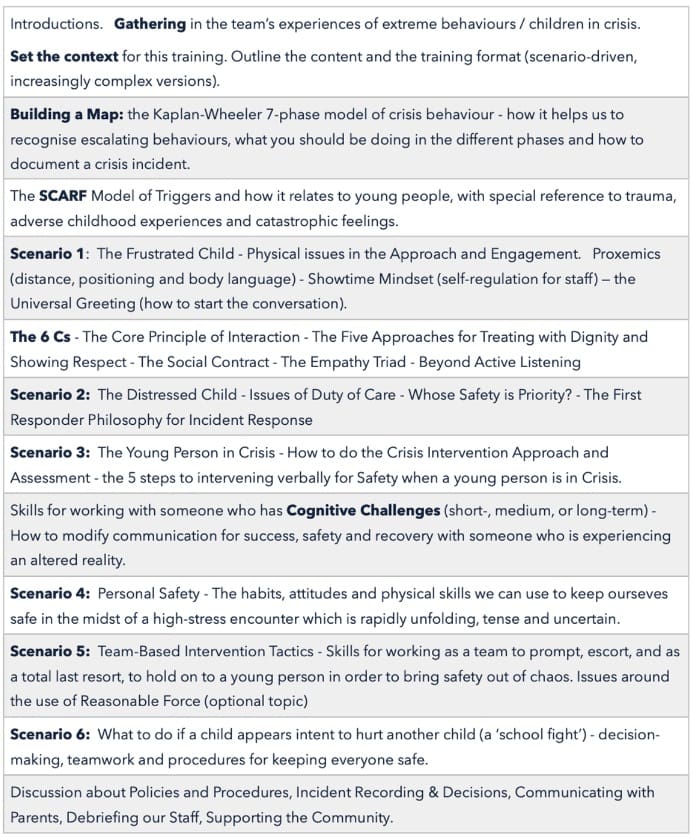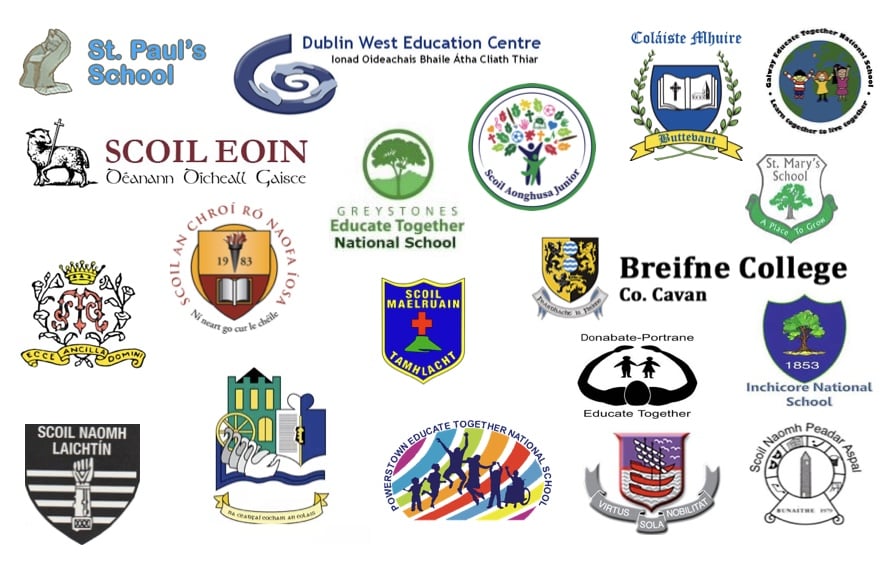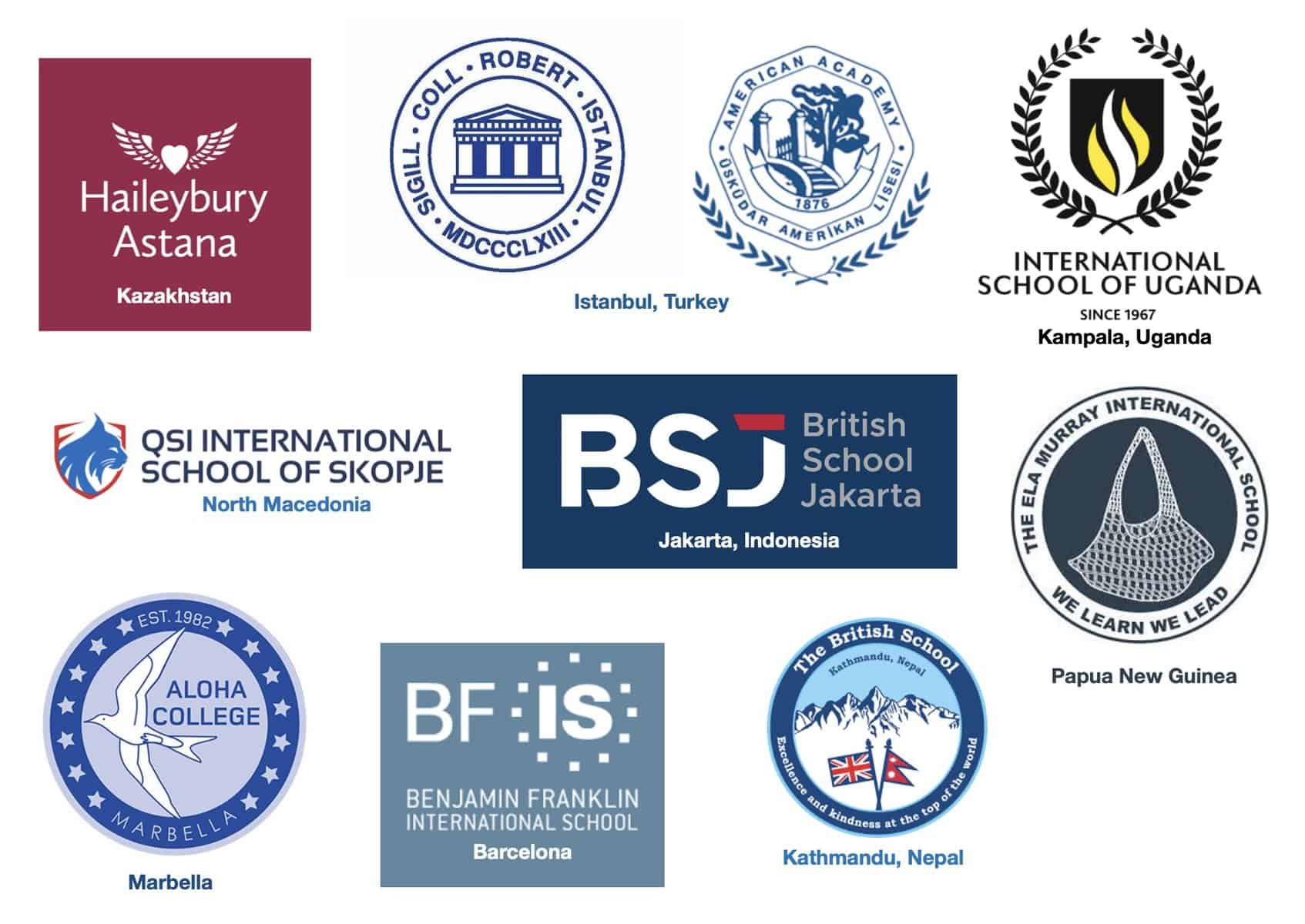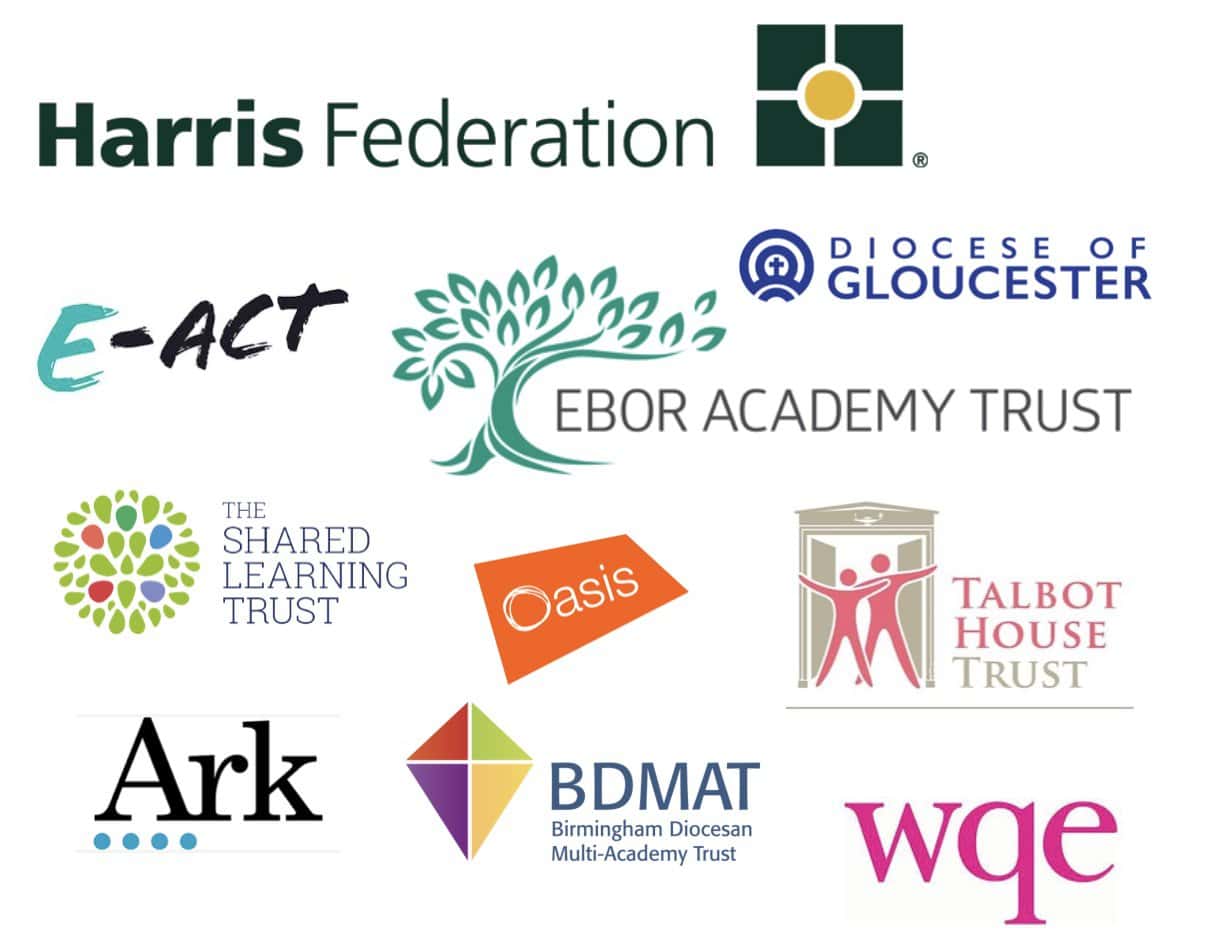


We help teams to perform professionally when encountering different kinds of behaviour they may encounter at work:
In helping your teams to be professional in the face of these behaviours, and to keep everyone safe in your school, we address three key themes:
Our Verbal Communication skills address three different kinds of interaction and seek to reduce the occurence or severity of conflict in each one.
We provide a crisis phases map for understanding how situations develop. This helps with pre-planning and post-incident processes.
We provide a step-by-step process for incident management which is applicable to many types of disturbance in a school context.
We provide a framework for decision-making which is based on common elements of law (Duty of Care and Reasonable Force) which are universal and help staff to shape professional response.

Non-Escalation
Wouldn’t it be better if we could “not escalate” more situations? It would mean less time and energy spent on de-escalating situations. Focusing on the skills of non-escalation means that your staff team’s focus changes and they become more pro-active in finding ways to ensure that people they encounter are not triggered when they interact with the organisation, its processes, rules and people. Consistent non-escalation nurtures relationships and establishes a robust Social Contract.
Inevitably, your teams will meet people who don’t want to follow the rules, who feel frustrated through lack of choice and who become upset when they feel it is their only choice to get what they want. At these moments, your people need skills in bringing those people back into a supportive atmosphere, where collaboration and cooperation are more likely and the social contract is rebuilt and strengthened.
Cognitive Difficulties
When your staff encounter somoene who is temporarily experiencing cognitive difficulties (such as after a sudden bereavement, or intoxication) or someone who is experiencing a more long-term cognitive challenge (such as with autism or learning disability) then a sensitive, low-arousal approach will be required in order to keep that person safe and encourage their cooperation and collaboration. Using a few simple strategies, this programme will give your team confidence that they are approaching such moments with sensitivity and professionalism.
Crisis Intervention
At times, your staff will meet people who are having such a hard time that they are involved in self-harming behaviours and who may not be aware of who else they might harm in the process. They feel low, anxious and depressed and they may hurt someone. Your team’s coordinated response in this moment is critical if we are to recover that person and make sure that they stay safe in your environment. With careful interaction, based on some simple principles of verbal intervention, we can help your staff to feel confident in those moments.







With over 15 years of experience working with clients, we are confident that we can gain an understanding of your issues, resources, timeframes and budget quickly and soon propose a training plan which fits your needs.
